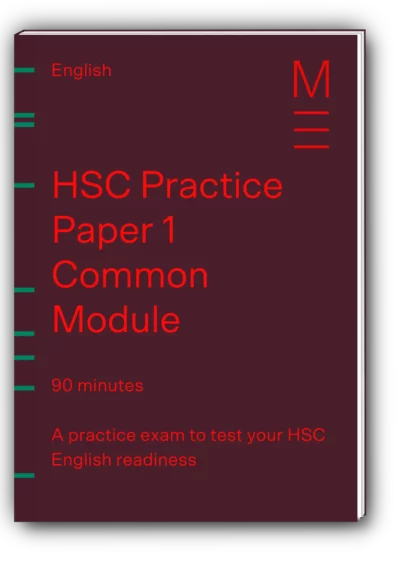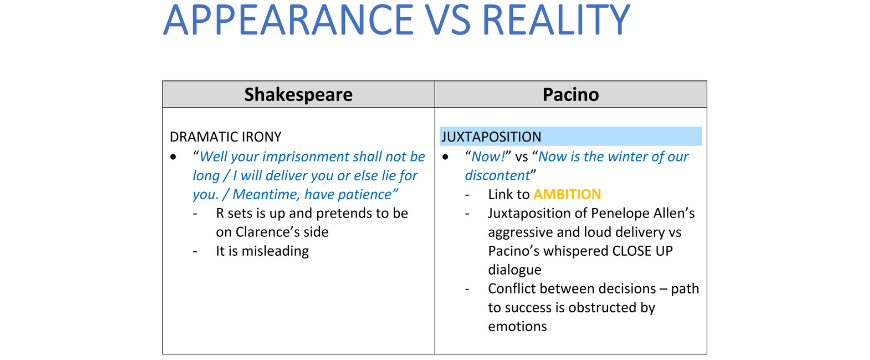Welcome to Matrix Education
To ensure we are showing you the most relevant content, please select your location below.
Select a year to see courses
Learn online or on-campus during the term or school holidays
Learn online or on-campus during the term or school holidays
Learn online or on-campus during the term or school holidays
Learn online or on-campus during the term or school holidays
Learn online or on-campus during the term or school holidays
Learn online or on-campus during the term or school holidays
Learn online or on-campus during the term or school holidays
Get HSC Trial exam ready in just a week
Get HSC exam ready in just a week
Select a year to see available courses
Science guides to help you get ahead
Science guides to help you get ahead
Are you ready for the HSC? In this article, we give you the 5 must-dos to prepare for your English HSC exams. We give you practical advice for preparing for this new, challenging iteration of the HSC for English.

Join 75,893 students who already have a head start.
"*" indicates required fields
Related courses

Join 8000+ students each term who already have a head start on their school academic journey.
The HSC is nearly upon us.
But are you prepared?
What are the essential things you must do?
In this post, we give you the fundamental 5 must-dos to prepare for your HSC English exams!
Make the most of your time and complete these 5 simple but effective tasks.
Test your Common Module Skills on our a practice paper and receive the marking Guidelines and Sample responses in your inbox tomorrow.
Simulate exam conditions and test your English skills with this full Mock Paper Fill out your details below to get this resource emailed to you. "*" indicates required fields
Download your English Advanced HSC Mock Paper!

Download your English Advanced HSC Mock Paper!
Let’s have a look, in detail.
In our How to Easily Analyse your English Texts Guide, we show you how to analyse your texts for the first time (but you’ve already done this, right?).
This is a quick summary of how you should analyse your texts:
However, at this stage of the HSC, you should already have done this.
You know your text, its themes, ideas and techniques. Your notes are ready.
With the HSC less than 12 weeks away, you need to refresh yourself with your texts again.
To do this, you need to:
1. Allocate a reasonable set amount of time to get through your text.
If it is a 2-hour long movie, set yourself 3 hours to watch the movie.
Remember, you will need to pause mid-movie or mid-read to update your notes. So, you should leave some leeway for this.
However, if you are really short on time, you can always scan your text or watch it in fast-forward.
(This is your last resort. You should always aim to properly reread or rewatch a text)
It is up to you to know how much reasonable time you need to effectively go through the text.
Ask yourself:
2. Sit down and read or watch the text again.
Take your time and carefully read or watch your text again.
If you come across an important part, read it slower or rewind it to see if you find anything new.
Keep your eye out for new discoveries, techniques or important scenes.
You should also do this when you are scanning or watching your text in fast-forward.
Don’t forget to write notes when you are rereading or rewatching your texts!
As you go through the text, stop, and jot down your thoughts and findings.
At the end of your session, you should always update your current notes and clean them up, or rewrite them.
To do this you should:
We know that the HSC is coming soon. We also know that you don’t want to waste your time rereading a book or rewatching a movie.
But, we assure you, it is not a waste of your time.
Rereading or rewatching your texts before your exams will:
It’s been a few months since you last touched your text. You will inevitably forget some useful details will help you in your exams.
This is why you need to reread or rewatch your texts!
When you reread or rewatch your texts before you exams, you refresh your mind about the text.
You notice the important scenes, themes, ideas, techniques and other details that you can use in your exams.
When you read or watch a text for the first time, you try to understand what is happening.
When you reread or rewatch, you pay attention to more complex details, like techniques, important scenes, and interesting themes and ideas.
When you reread and rewatch some more, your initial thoughts and perspectives about the text changes!
This is because you grow, learn and change over time.
So, when you come back to a text after a few months, you approach it with a new mindset.
Now, you have a wider understanding of your text, which will increase your chances to effectively answer a wide range of exam questions.
When you are familiar with the text and have a wide understanding of the text, you will be confident in your exams!
Rewriting your notes does not mean typing out your current notes word for word and making it look pretty.
It also does not mean updating your current notes. (Remember, we’ve already discussed how to update your notes above)
Rewriting your notes means summarising your comprehensive notes into a quick cheat sheet.
Essentially, cheat sheets are very concise notes of important points.
They are easy to remember and act as reference points to trigger your memory of more complex information.
Before we begin writing our cheat sheets, we need to make sure that our comprehensive English notes are organised.
This will make rewriting our notes a lot easier.

Now that our comprehensive English notes are ready. It is time to write our cheat sheets:
1. Collate important techniques/episodes
Your most effective techniques and important scenes should already be highlighted in your original notes.
Make a list out of the ones that you think you will need for your exam.
Don’t include everything in your notes. That will be too much to remember!
2. Organise by ideas
Organise these by the ideas. Remember, these ideas will form your arguments (body paragraphs) to support your thesis.
This is why it is important that your notes and cheat sheets are organised and your ideas are linked together.
3. Write out the important techniques and quotes only
You don’t need to write out the analysis.
You only need a reference that is easy to remember. The analysis should come naturally to you.
4. Add any important reminders or notes
This is a good chance to take notes of links between ideas, complex analyses, and other important things that you think you will forget.
5. Clean it up
Now, it’s time to make your notes look pretty and organised. Make sure that everything is easy to read and clear.
Cheat sheets are simple and clean.

Cheat sheets are very useful before exams because you can:
Refine your English skills and write with confidence with our Year 12 English Term Course. Our expert teachers will guide you through our tailored HSC resources for HSC success. Learn more about Year 12 English Term Course today.
Start HSC English confidently
Expert teachers, detailed feedback, one-to-one help! Learn from home with Matrix+ Online English courses.
Practice responses are any essays, creatives or short response questions that you do without exam conditions.
You will find that many students have pre-written essays and creatives. These are practice responses.
However, it is important that you don’t fall into the trap of memorising and regurgitating these practice responses.
You are being tested on how well you can adapt your knowledge to answer the question, not memorise a perfectly crafted essay.
So, it is important to remember that practice responses are for you to practice your skills, not memorise!
In our Beginner’s Guide to Acing HSC English, we showed you How to Write an Essay, and How to Write a Creative.
Now, we will show you how to you can write practice essays and creative responses.
Before you begin writing practice responses, make sure that you have a strong understanding of your text.
This means that you need to do these steps:
Now that you have a strong understanding of your text, you can start writing practice responses!
This is how we do it:
1. Get a question or stimulus from a reliable source
Find past HSC papers, your school’s previous exam papers or other school’s papers.
You can even ask your teacher, Matrix teacher or Matrix Tutor to assign you with a question or stimulus. They will be glad to help!
2. Read the question carefully
Look at the keywords and the directive words.
What is the question asking you?
3. Write a plan
Remember, this practice response isn’t taken under exam conditions. So, you can refer to your notes to figure out how to answer the question.
4. Draft
Now that you have a plan, it’s time to write it!
Remember, a draft is not meant to be perfect! You are simply putting your ideas into words.
So, to draft, you need to:
5. Edit
Give yourself some time before you go back to your practice response.
Now, you are going to fix up your draft!
To do this, you need to:
6. Get feedback
Remember, your teachers and Matrix teachers and Tutors are always ready to help you.
It is important that you receive feedback to find your weaknesses and strengths and keep improving your writing.
So, how do we ask for feedback?
7. Edit again!
After you receive your constructive feedback, you need to edit!
Remember, there is no point in asking for feedback if you don’t act on it.
This is a great way to identify strengths and weaknesses.
You will find that you can craft perfect essays, creatives and short response questions if you are not restricted by time.
Practice responses allow you to:
Even if you are writing practice responses, it is important that you also do essay scaffolding speed drills.
You know that essay scaffolds are basically essay plans in response to a specific question.
It usually includes:
So, essay scaffolding speed drills are basically, writing out essay plans to a variety of different questions… very fast.
Before you begin, make sure that you know your text very well.
1. Revise your notes and text
Take this time to remember your main set of evidence, important points and main ideas.
2. Gather a set of essay questions
You can get these from previous HSC exam papers, your school’s past papers, other school’s exam papers or ask your teachers.
3. Set a timer to 10 minutes.
You need to imitate the HSC’s 10 minutes reading time.
It is important that you time yourself because you will not have 1 hour to plan your essay in your HSC exam.
These speed drills will help you think on the spot.
4. Read the question carefully
It is crucial that you answer the question, instead of writing a pre-planned essay.
So, circle or highlight the keywords and directive words in the question.
This will help you identify the main ideas that you need to focus on in your essay.
5. Think about your text
Think about the main ideas and themes in your text and how it relates to the question.
6. Write your thesis
Your thesis is the argument of your essay. It directly answers the question.
Remember, a good thesis will expand, extend and give personal insight about the question.
It is not a regurgitation of the question.
So, add in your own personal perspectives and view in your thesis, and always ask ‘how‘!
Remember, your thesis doesn’t have to be perfectly crafted in this stage. This is a rough scaffold.
7. Jot down your main arguments.
You should have at 2 – 4 main ideas. That is, 2 – 4 body paragraphs.
Make sure that they not only directly connect to the thesis, but they also extend the thesis.
8. Recall relevant evidence for each body paragraph
You should have memorised your most important evidence already.
Now, you need to recall all the evidence that supports the ideas in your body paragraphs.
Write them down!
9. Do it again with a different question
After you finish that scaffold, take a brief break!
Then, let’s get back to it and do another essay scaffolding speed drill!
Essay scaffolding speed drills have benefits that practice responses or practice papers don’t have.
(This isn’t an excuse to just do scaffolding drills. You need to have an equal balance of all 3!)
Essay scaffolding speed drills help you:
And they only take 10 minutes to do! ⏰
So, if you’re ever short of time but need to practice English… do a drill!
Most students put off practice papers because doing it under exam condition stress them out too much.
However, this isn’t an excuse to put it off!
Remember, one of the biggest problems in HSC English exams is time management!
This is why the final key to succeed in your HSC English exams is sitting practice papers!
1. Gather practice papers
As we discussed earlier, you can find previous HSC exam papers, your school or other school’s past papers or just ask your teachers or Matrix teachers to give you a few questions.
Matrix students have a supply of practice questions in their books and online resources. You can even find our practice paper 1s on our website, here:
2. Find a quiet space and an appropriate time
It is important that you are sitting your practice exam in a space that you can concentrate in.
You can’t do an exam if your baby brother is screaming at the top of his lungs. And you shouldn’t be sitting a practice exam on your bed!
Also, it is important that you choose to start your exam at an appropriate time.
It is not a good idea to start your exam at 1 AM or 20 minutes before your grandma’s birthday dinner.
Remember, an English Paper 1 is 1 hour and 40 minutes and Paper 2 is 2 hours and 10 minutes.
So, leave enough time to do the whole paper or a section (paper 1 sections are 45 minutes, Paper 2 are 40 minutes).
3. Remove distractions!!
Remember, you can’t do an exam with a phone, tablet, or laptop turned on.
So, turn off any distractions and remove them when you are doing your practice exam too!
4. Set your timer
Set it to 45 minutes for an essay, creative or short response section or 2 hours for the whole paper.
5. Do it!!
Just start writing!
6. Mark it yourself or get someone to read over it
After you finish, give yourself a break.
Come back to read over your work when you have a fresh mind.
This can be a few hours later or the next day!
Find any areas that you can improve on and keep it in mind.
You can always ask another person to read over your work and give feedback too!
Sitting practice papers might be stressful, but they have many benefits:
Written by Matrix English Team
The Matrix English Team are tutors and teachers with a passion for English and a dedication to seeing Matrix Students achieving their academic goals.© Matrix Education and www.matrix.edu.au, 2025. Unauthorised use and/or duplication of this material without express and written permission from this site’s author and/or owner is strictly prohibited. Excerpts and links may be used, provided that full and clear credit is given to Matrix Education and www.matrix.edu.au with appropriate and specific direction to the original content.